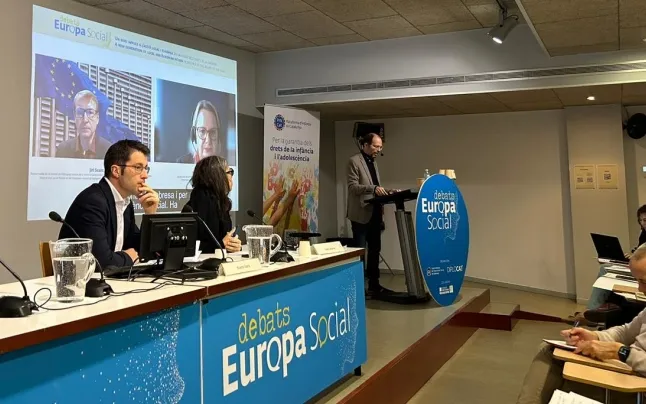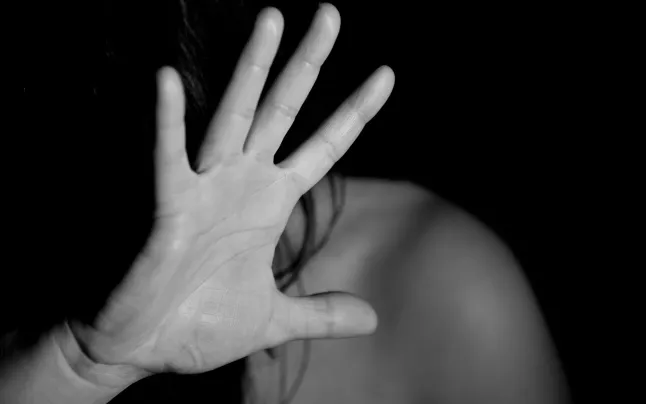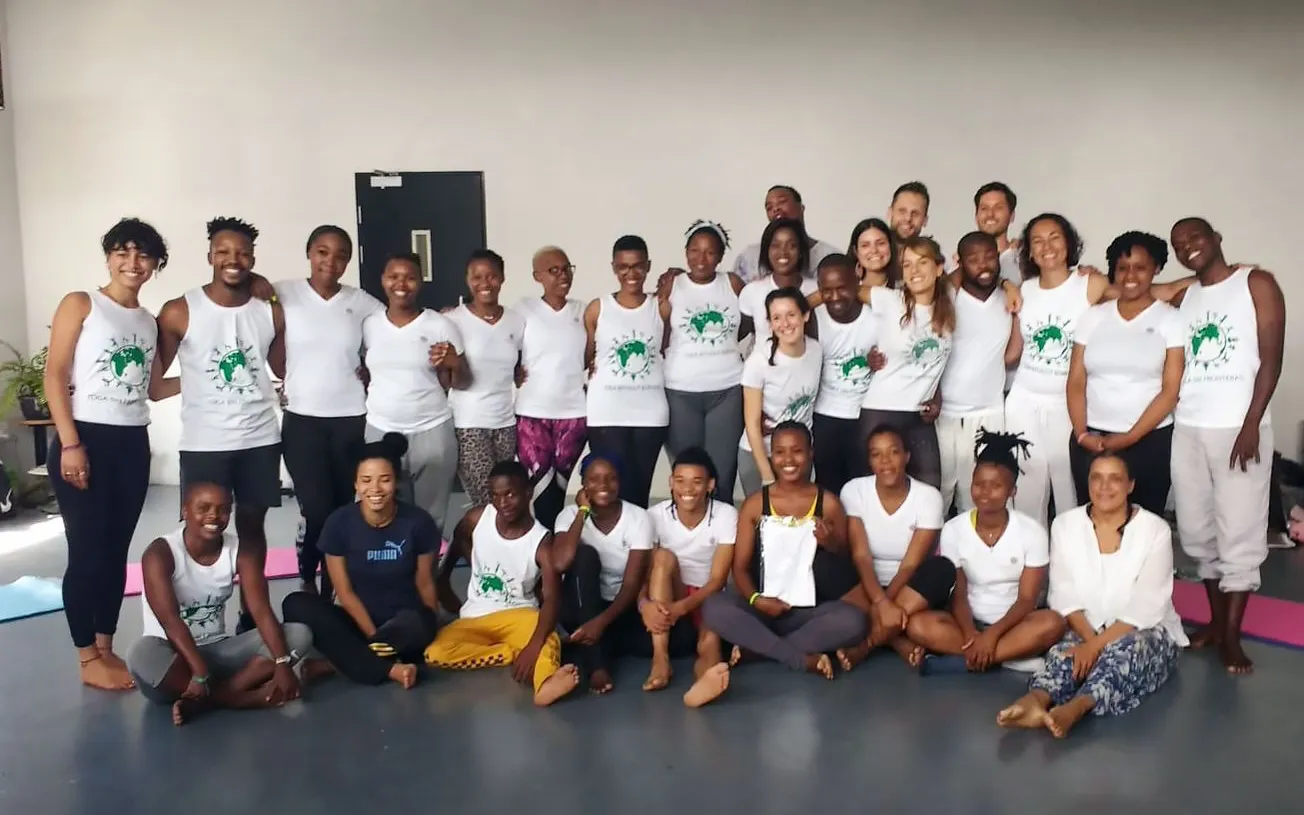The social work graduate from the Pere Tarrés Faculty and social worker at Sant Joan de Déu Hospital shares and reflects on her life story.
Mahmuda Mohamed graduated last June in Social Work at the Faculty of Social Education and Social Work Pere Tarrés of the Ramon Llull University. She was born in the Sahara desert, her land, which is still very present, as she demonstrated during the graduation ceremony by fulfilling a promise to herself and conveying to all those present a few words in Hassania, her mother tongue. Mahmuda then talks about her history, her life, her process of adaptation to Catalonia and her vocation for the social world.
When you tell your life, where do you start?
I begin by explaining that I was born in the Sahara desert, in the 'Liberated Territories' area. When I turned six, my parents decided that we would move to the Sahrawi refugee camp with the idea that I could study there.
What is childhood like in a refugee camp?
Very happy. When I lived in the desert I lived in a set of haimes with just my parents, we had neighbors relatively close, but mostly I lived with just my parents. In the refugee camp I spent the whole day playing with other boys and girls who lived there, I felt very free and very safe. He left the house during the day and didn't come back until nightfall, we always went from one house to another... I have very beautiful memories.
And what is it like to study in a refugee camp?
I started my studies where, by age, it was my turn, which here would be the first grade. Studying in a refugee camp is not that different: there is a school, there is a set of teachers, good teachers, there are books... There are also Spanish teachers, since the Sahara has a kind of agreement with Cuba and many young people travel there and once they have spent some time there and learned the language they return to become teachers. This is also due to a political and historical issue: all African countries have learned as a second language the language of the country of which they were a colony, and in the case of the Sahara, the 'second language' is Spanish.
You talked about politics and history. You have always been clear about your position on the situation in the Sahara.
I want the Sahara to be free. I am very sorry for how the Sahrawi people have been recognized (or not recognized) by some European countries and European institutions, I think it responds to current interests and that they have forgotten the history of the last 140 years and the rights of thousands of people.
When are you traveling to Europe for the first time?
At the age of eight I traveled to Barcelona for the first time through a project called 'Vacances en pau', which aims to open the doors of Sahrawi refugee camps to dozens of boys and girls during the summer months , the hottest and in which we could reach 50 degrees, and host them in different places in Spain, France, Italy and Switzerland for two months.
On this first occasion, I was hosted by a family with whom I have no contact today, and the following summer, when I was nine years old, I was hosted for the first time by what is currently my host family here in Barcelona. I participated in the program until I was twelve.
And how are these four summers you spend in Catalonia?
very funny I remember very much swimming in the pool, eating a lot, going shopping... In my second year here I was also enrolled in a camp for the first time and that was my first contact with educational leisure.
Later, you even wanted to train as a monitor, didn't you?
Yes, at the age of fifteen I entered another program that allowed me to do a bit of the reverse operation: I lived all year in Barcelona to study and in the summers I returned to the Sahara with my parents. It was in those years when I began to be part of the world of entertainment until I trained as a monitor.
What importance do you give to these early years in the world of fun and leisure?
For me it was a very important element of integration. It is where I learned Catalan, where I established my first personal relationships, my first friendships and very beautiful people. I also got to know the mountain, I connected a lot with nature and in general it served me to learn a lot. Monitor, nursing assistant for a few years, social integrator, and now social worker thanks to the studies completed at the Faculty of Social Education and Social Work Pere Tarrés of the Ramon Llull University... You have always had a certain interest in care and accompanying people, it seems?
Yes, always. In fact, I think it has been difficult for me to find exactly my place within the whole range of possibilities involved in the care and support of the person. As a nursing assistant, for example, I saw and experienced things that I would never want to experience again. I think that in social work I have found my place and my vocation. I like to accompany people at risk of exclusion, bring them closer to the different resources available to them or inform them about their rights.
Personal experiences, in this case, have also been a form.
You currently work as a social worker, correct?
Yes, I am a social worker at Hospital Sant Joan de Déu. In fact, the same day I graduated from the Pere Tarrés Faculty was the day I signed my employment contract. Now I want to continue learning through work, maybe take a specialization master's degree, I don't know. I'm looking forward to seeing what the future holds for me from now on.







Add new comment